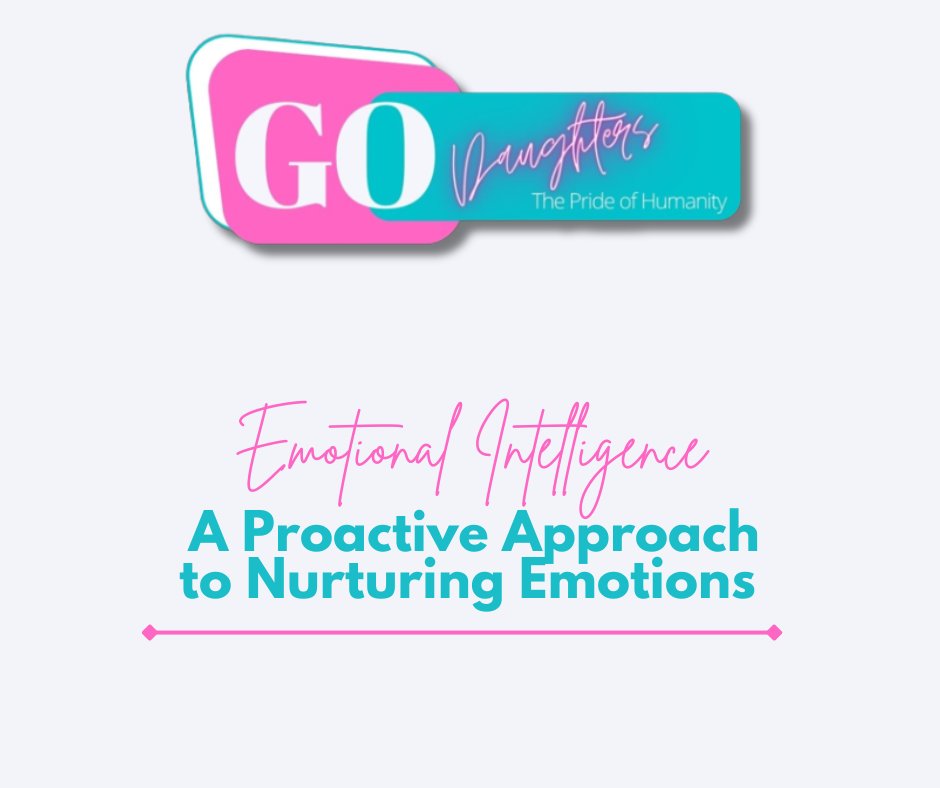
Emotions are an integral part of the human experience. They influence our thoughts, behaviors, and overall well-being. Traditionally, we’ve been taught to “manage” our emotions, often implying a reactive approach to dealing with them. However, there is a more proactive and empowering alternative – nurturing emotional intelligence. In this blog, we’ll explore this proactive approach and its potential to transform our relationship with emotions.
Understanding Emotional Intelligence
Emotional intelligence, often abbreviated as EQ (Emotional Quotient), is the ability to recognize, understand, manage, and effectively use one’s emotions and those of others. It encompasses a wide range of skills, including empathy, self-awareness, self-regulation, and social skills. Unlike merely managing emotions as they arise, nurturing emotional intelligence involves developing these skills to navigate emotions in a more proactive and constructive manner.
The Reactive vs. Proactive Mindset
The traditional approach to emotions revolves around reacting to them when they arise. For instance, if you’re feeling angry, you might try to suppress that emotion or vent it in a way that may not be productive. This reactive mindset often leads to unintended consequences, including strained relationships, increased stress, and decreased emotional well-being.
In contrast, a proactive approach involves:
- Self-Awareness: Understanding your emotions, their triggers, and their impact on your thoughts and actions. This self-awareness is the first step in nurturing emotional intelligence.
- Self-Regulation: Learning to manage and regulate your emotions in a healthy and constructive way. Instead of reacting impulsively, you can choose how to respond, making more informed decisions.
- Empathy: Developing the ability to understand and empathize with the emotions of others. This skill enhances your relationships and helps you navigate social interactions more effectively.
- Effective Communication: Being able to express your emotions clearly and assertively while also being an active and empathetic listener.
- Problem-Solving: Using your emotional intelligence to address challenges and conflicts more effectively by considering emotions in decision-making.
The Benefits of Nurturing Emotional Intelligence
- Improved Relationships: Developing emotional intelligence helps you connect with others on a deeper level, leading to stronger, more positive relationships.
- Enhanced Decision-Making: When you understand your emotions and those of others, you can make more informed choices, whether in your personal or professional life.
- Reduced Stress: Proactively addressing your emotions reduces stress and anxiety, leading to improved mental well-being.
- Conflict Resolution: Emotional intelligence enables you to handle conflicts more constructively, fostering better resolutions and healthier outcomes.
- Leadership Skills: In the workplace, nurturing emotional intelligence is essential for effective leadership, as it enables you to lead with empathy, understanding, and influence.
Developing Emotional Intelligence
Nurturing emotional intelligence is a lifelong journey, but there are several steps you can take to get started:
- Practice self-reflection to become more aware of your emotions and their triggers.
- Engage in mindfulness and meditation to help regulate your emotional responses.
- Seek feedback from trusted friends, family, or mentors to gain insight into your emotional strengths and areas for improvement.
- Invest in personal development and emotional intelligence training programs or workshops.
- Encourage emotional intelligence in your workplace or community by promoting empathy and open communication.
Conclusion
Shifting from a reactive approach of “managing” emotions to a proactive approach of nurturing emotional intelligence is a powerful step toward personal growth and better relationships. By developing self-awareness, self-regulation, empathy, and effective communication, you can navigate the complex landscape of emotions with greater confidence and grace. Embrace this proactive alternative to elevate your emotional well-being and unlock your full potential in both personal and professional spheres.




